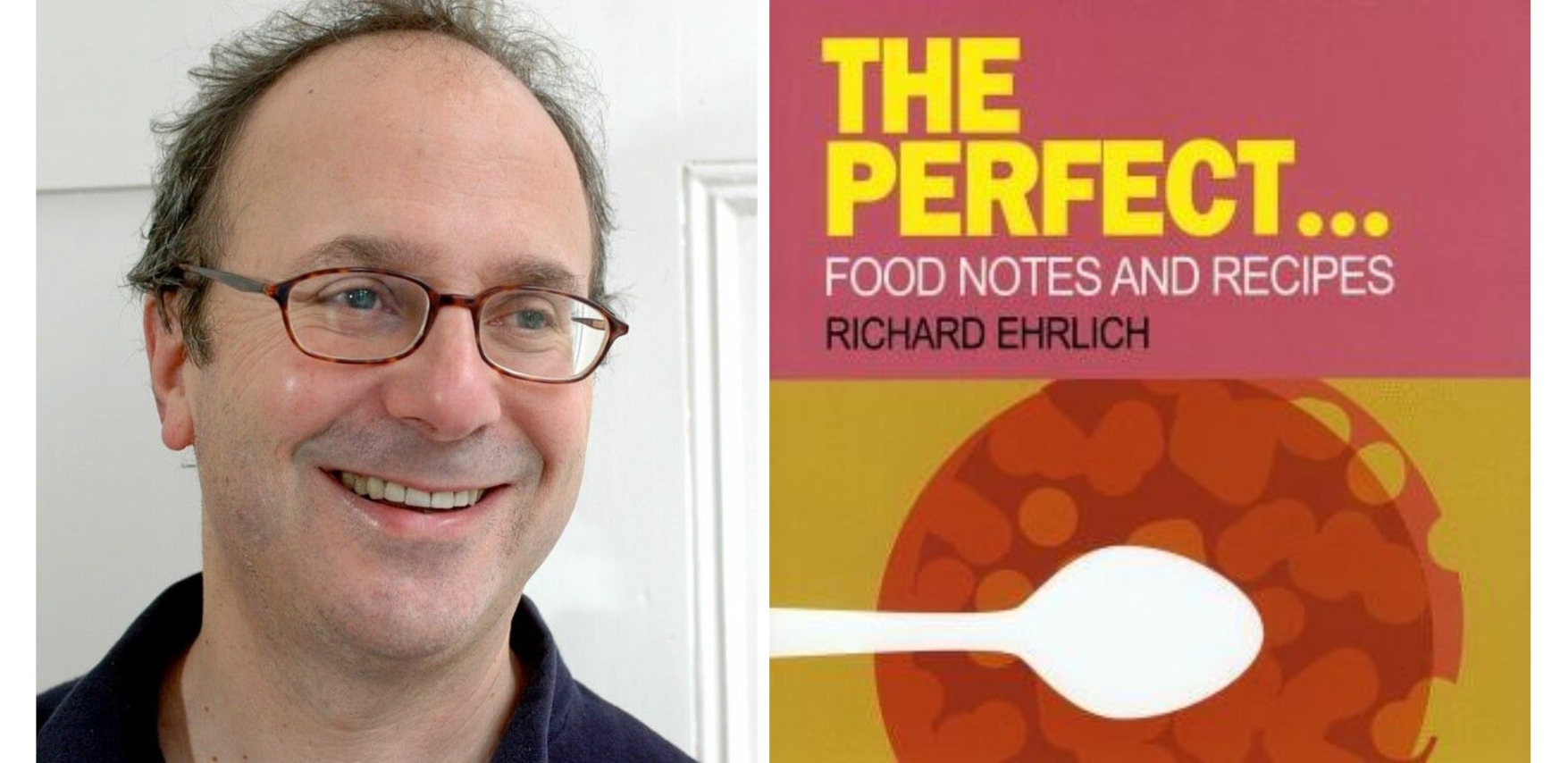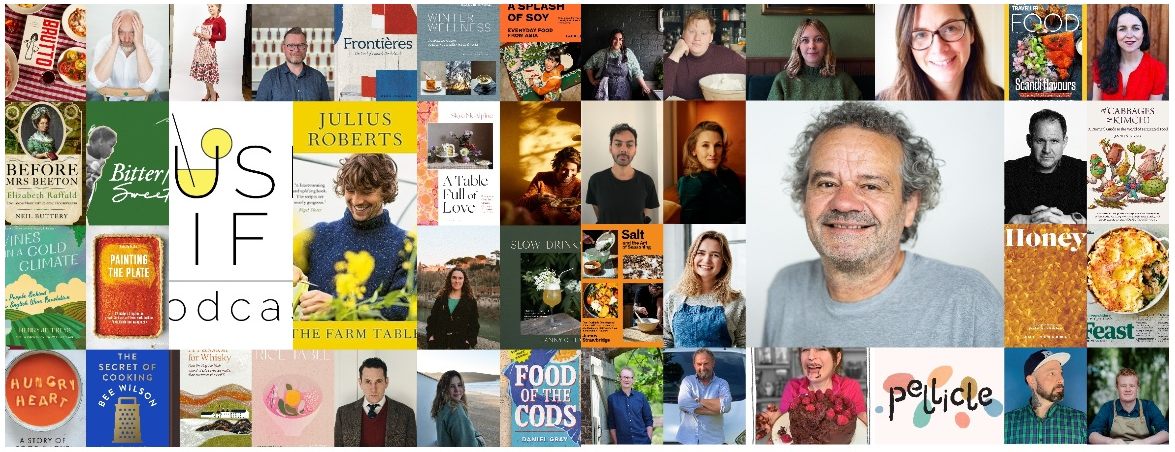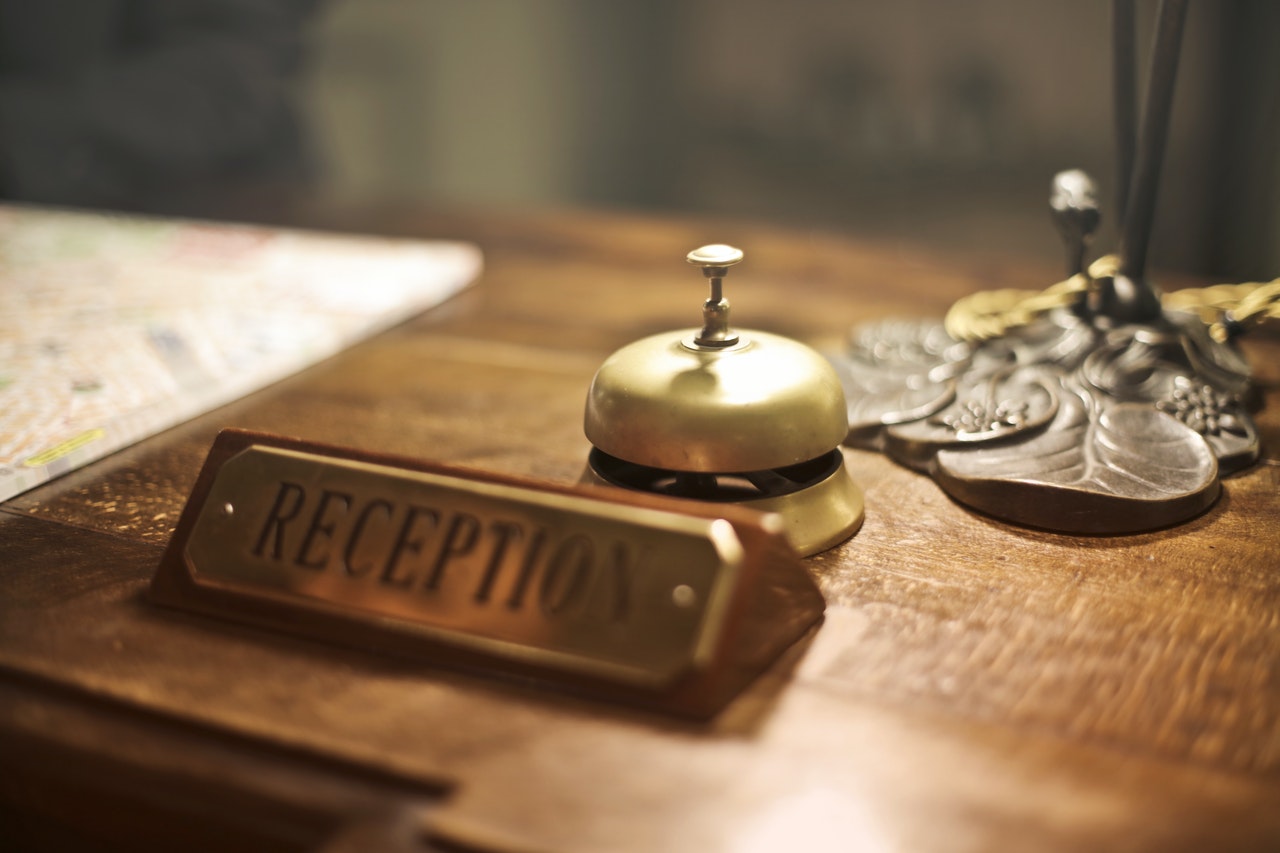Five minutes with… Richard Ehrlich
Each month we call up a Guild member and ask them what’s occurring. This month, Richard Ehrlich.
1) Have you always been a food writer?
I started out as a book editor and then became a freelance writer, doing a bit of this and bit of that, I wrote about art history – especially the history of photography – for a good while. I got into food writing almost by accident, an incident covered in more detail in my answer to the third question. (I still love editing, by the way, and I’m very good at it.)
2) One of my favourite reads is your collection of ‘The Perfect…’ from 2004. Can you give us the background of that collection?
Thank you for liking that book! It arose from a column of that name in The Guardian – no relation to the current version written by my amiga Felicity Cloake. Mine took a very different approach from hers; it had far less space, for one thing, and that taught me a great deal about writing concisely but informatively and entertainingly. Anyway: when the book was well on its way into the production cycle, the column got axed. That kind of timing seems to seek me out: the same thing happened with a book called Green Kitchen that arose from a column I wrote for The Times.
3) What is the history of your association with the Guild? How has it contributed (if at all) to your work as a food writer?
I would probably never have written about food had it not been for the Guild. A long time ago in a galaxy far, far away, the Guild ran a food writing competition with the PR firm Media Relations; the award was sponsored by Badoit, a Media Relations client. The requirement was a 1000-word essay and the prize was £1000. I won it. That led to a job with Cosmopolitan, which at the time had a serious food column. Through my job I became friendly with The Independent food writer Jeremy Round, and at the launch party for his book he introduced me to Matthew Fort, newly appointed as Food and Drink Editor at The Guardian. Matthew hired me to write the recipe column, and one thing led to another. But it was the Guild that got it started.
4) How has the world of food writing changed during your career?
Got a couple of hours to listen? Didn’t think so. I will mention three points. One is the under-funding of food writing. With few exceptions, we were never lavishly paid. But rates have gone down, as every GFW member knows. This development is in part, of course, a reflection of the rise of internet publishing, which provides recipes for free – so now there are many readers who don’t think you need to pay for recipes. But de-funding affects other areas. I am often saddened to see excellent cookbooks let down by bad editing, and I’m sure that’s often because of budgetary restraints.
Two: the steady rise of chefs as cookery writers. When I started out, just one chef (the peerless Simon Hopkinson) had a recipe column in a national paper. Now chefs are everywhere, whether they’re writing (maybe I should say ‘writing’) the columns or just supplying free opinions for ‘roundup’ pieces – ‘Britain’s top chefs share their tips for reusing aluminium foil’ etc. Sadly, many home cooks have got the message that culinary truth comes solely from someone who works in a restaurant. Editorial policies cater for (and promote) this misconception.
Three: the welcome decline in ‘ethnic’ cookery. By which I mean that whereas anything outside Europe was once regarded as exotic and foreign, now a mainstream audience sees diverse cuisines as part of our shared heritage. I have witnessed this slow transition, and I think it’s great.
5) What is your fondest memory from your career?
Too many to enumerate. Some highlights: recording for ‘The Food Programme’ with Sheila Dillon sticking a microphone in my face; getting bartending training from the late, greatly lamented Dick Bradsell; winning a couple of Glenfiddich Awards; being told by Nico Ladenis, my personal hero among the great UK chefs, that I had a good palate. (I detected a hint of cayenne in one of his dishes that was so slight he had forgotten it was there.) I deeply cherish the times when people told me that a recipe of mine had made a major difference to their cooking life.
In general, however, the greatest pleasure has come from getting to know so many good people. Among deceased colleagues I would mention in particular Derek Cooper and Jeremy Round. Among the living, there are too many to mention without possibly offending others. But working as a Committee member (and sometime Chair) with our administrators, Christina Thomas and then Jonathan Woods, has been one of the great professional pleasures of my life. And so has working on the Committee with a changing array of colleagues.
6) In these trying times, how do you see the activity of food writing contributing to the new world we live in?
I am lousy at predictions. But I suspect that the new world will have lower living standards, and that many of those now cooking at home because of lockdown will continue to do so because they won’t have as much disposable income. We food writers have to help them adapt, help them do high-quality, cost-effective home cooking. Part of that is abandoning the idea that they need to cook like chefs, and that they need to use lots of ingredients to get a good result. Remember, some people don’t like cooking. We have to cater for them as well as the enthusiasts – and we mustn’t insult them by telling them how life-affirming and joyous cooking is. And those of us who specialise in food policy and food politics will have to keep reminding readers and listeners that what lands on their dinner table is intimately tied up with every aspect of life on our threatened planet.



